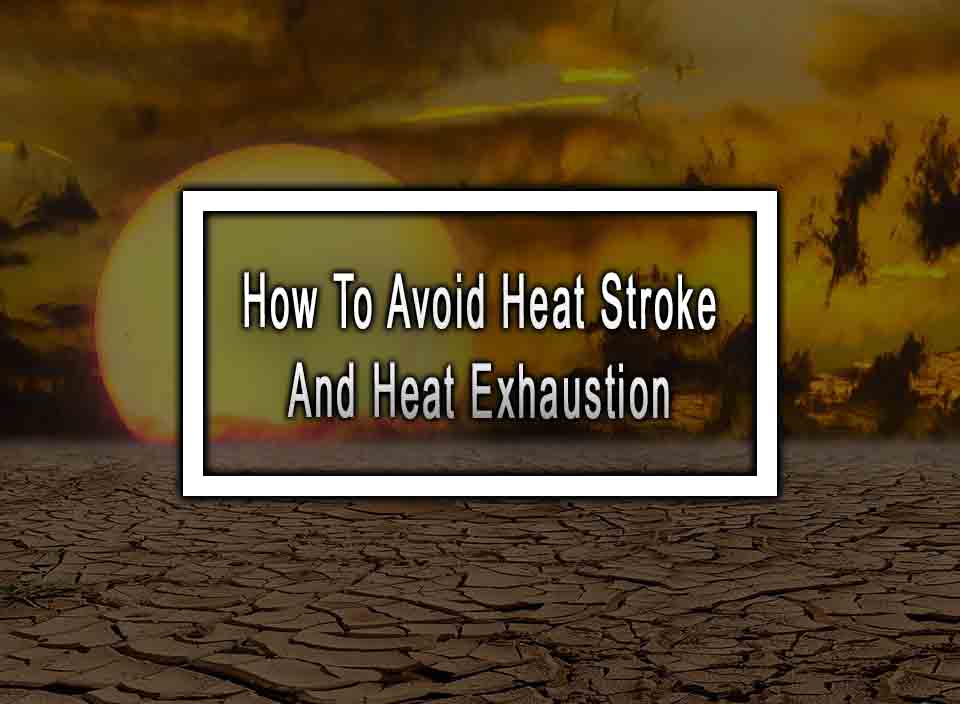Table of Contents
ToggleHere Are Some Tips To Avoid Heat Stroke And Heat Exhaustion
Summer is the time when most people love to enjoy the warmth of the sun and outdoor activities. However, rising temperatures during the summer season can result in heat-related illnesses like heat stroke and heat exhaustion. Heat stroke is a serious medical condition that can cause damage to the vital organs of the body, and it can even be fatal in some cases. Therefore, it is essential to know how to avoid heat stroke and heat exhaustion to enjoy the summer season without any health risks.
Stay hydrated
One of the most important things to do during the summer season is to drink plenty of fluids to stay hydrated. When you sweat, you lose essential fluids from your body, and it is crucial to replace them by drinking water or other fluids like sports drinks.
Avoid alcohol and caffeine
Alcohol and caffeine can dehydrate your body and increase the risk of heat stroke and heat exhaustion. Therefore, it is important to avoid these beverages during the summer season, or at least limit their consumption.
Wear light-colored and loose-fitting clothing
Wearing light-colored and loose-fitting clothing can help you stay cool during the summer season. Dark clothing absorbs heat and can make you feel uncomfortable, while tight-fitting clothing can restrict the flow of air and increase the risk of heat stroke and heat exhaustion.
Take breaks in the shade or air-conditioned areas
If you are spending time outdoors during the summer season, it is important to take breaks in the shade or air-conditioned areas to cool down your body. This can help you avoid heat stroke and heat exhaustion and allow you to enjoy your time outdoors without any health risks.
Avoid strenuous activities during the hottest hours of the day
Strenuous activities like exercising or working outdoors can increase the risk of heat stroke and heat exhaustion during the summer season. Therefore, it is important to avoid these activities during the hottest hours of the day and choose to do them early in the morning or late in the evening when the temperatures are lower.
Use sunscreen
Sunburn can increase the risk of heat stroke and heat exhaustion during the summer season. Therefore, it is important to use sunscreen with a high SPF to protect your skin from the harmful UV rays of the sun.
Conclusion
In conclusion, heat stroke and heat exhaustion are serious medical conditions that can result in severe health problems or even be fatal. Therefore, it is crucial to take the necessary precautions to avoid these conditions during the summer season. Staying hydrated, avoiding alcohol and caffeine, wearing light-colored and loose-fitting clothing, taking breaks in the shade or air-conditioned areas, avoiding strenuous activities during the hottest hours of the day, and using sunscreen are some of the essential tips that can help you avoid heat stroke and heat exhaustion. By following these tips, you can enjoy the summer season without any health risks and make the most out of the warm weather.
Avoid Heat Stroke And Heat Exhaustion FAQ
Here are the most common questions about avoiding heat stroke and heat exhaustion.
What are the symptoms of heat exhaustion?
The symptoms of heat exhaustion include heavy sweating, weakness, nausea, dizziness, headache, muscle cramps, and a rapid heartbeat. In severe cases, a person may also experience vomiting and fainting.
How can heat exhaustion be treated?
The best way to treat heat exhaustion is to move the affected person to a cooler area and give them fluids to drink. It is also important to remove any restrictive clothing and to fan the person to help them cool down. In some cases, medical attention may be required.
What are the symptoms of heat stroke?
The symptoms of heat stroke include a high body temperature (over 104 degrees Fahrenheit), a rapid heartbeat, shallow breathing, confusion, seizures, and loss of consciousness.
Who is at a higher risk of developing heat-related illnesses?
People who work or exercise outdoors for extended periods of time are at a higher risk of developing heat-related illnesses, as well as young children, older adults, and people with certain medical conditions like obesity, heart disease, and diabetes.
Can medications increase the risk of heat-related illnesses?
Yes, some medications can increase the risk of heat-related illnesses. For example, diuretics, antihistamines, and antidepressants can all affect the body’s ability to regulate its temperature. It is important to talk to a doctor or pharmacist about any medications you are taking and their potential effects on your body’s response to heat and humidity.
More like this: 6 Ways To Prevent Breast Cancer












